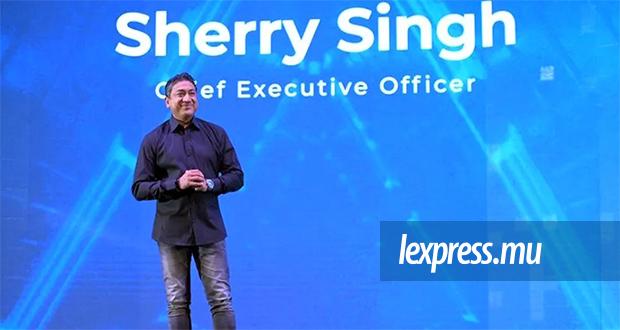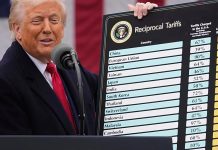
Africa-Press – Mauritius. The former CEO of Mauritius Telecom and key government insider Sherry Singh came up with a bombshell as he quit the telecoms giant: alleging that prime minister Pravind Jugnauth asked him to allow an as-yet-unidentified third party to install equipment to monitor internet traffic.
Here is why Singh’s allegations, if proved true, would be a significant departure from the Mauritian state’s already sordid record when it comes to the internet.
The former CEO of Mauritius Telecom (MT) Sherry Singh launched a bombshell as he quit his post recently, alleging that prime minister (PM) Pravind Jugnauth demanded that he allow an as-yet-unidentified third party to install equipment in MT facilities to allow it to monitor internet traffic.
Singh has so far kept his cards close to his chest, but this has galvanized the opposition parties that are accusing the government of orchestrating “high treason”.
“What Singh has said has come as a bit of a shock because he was always considered as the right hand of Pravind Jugnauth and a part of the government’s inner circle,” says Ram Seegobin of Lalit, “that being said he cannot just play this game of saying just a bit and then hold back the rest; this concerns the security and privacy of the whole population and cannot be treated as just some political game or another example of infighting within the government.
” The PM has, for his part, denied that the government had any such plans.
On Tuesday, when the opposition leader Xavier-Luc Duval attempted to ask whether such a conversation between Jugnauth and Singh had taken place on April 15, preceded by another conversation between the secretary to cabinet (who is on the board of MT) the previous day, the speaker of the National Assembly Sooroojdev Phokeer derailed the session, ending up expelling the near-entirety of the opposition from parliament.
So far, in response the PM has admitted that he did speak with Singh, but this was only to have an Indian company come and carry out a survey of MT equipment for connectivity with the internet.
“The prime minister has denied it without giving any details himself; we need to be told exactly what took place,” argues lawyer Sanjay Bhuckory.
The problem with Singh remaining silent about the details of his allegation is that it significantly curtails what limited action can be done in such cases.
A number of proposals have been floated on how to investigate the allegations: each being limited in its own way. For instance, one option could possibly be the Director of Public Prosecutions (DPP) ordering an investigation into Singh’s allegations. However, recent attempts have proved how limited that tactic can be.
On May 6, the DPP ordered the Port Louis district court to open an official investigation into the deportation in April of Slovak-national Peter Uricek, which current head of the bar council and Uricek’s lawyer Yatin Varma alleged was done in violation of a court order preventing Uricek’s deportation from Mauritius.
That same month, the attorney general Maneesh Gobin succeeded in getting the Supreme Court to freeze the investigation ordered by the DPP, while it is currently deliberating opening a judicial review of the DPP’s decision to open an investigation in the first place.
“I don’t think the law permits him to open such an investigation, in the Uricek case; certainly it appeared that he did not have the authority to do so,” says Bhuckory.
The DPP’s powers, it seems, are more limited than generous interpretations of the law would allow. In straightforward cases of deaths and homicides, yes.
In more complex matters involving the power of the state, not so much. If the DPP could be stymied in the Uricek case, the stakes of what Singh is alleging are all that much higher for the government.
“We don’t really have all that long a history of the DPP starting investigations on his own bat and the powers of the DPP here are not as clear-cut,” argues Seegobin.
Or take another suggestion that has been floated: instituting a commission of inquiry into Singh’s allegations. “When it comes to that too, it is the prime minister that holds all the cards,” argues Bhuckory.
This was demonstrated quite clearly in 2018 when former President Ameenah Gurib-Fakim wanted to start her own commission of inquiry to look into the dealings of Angolan billionaire Alvaro Sobrinho in Mauritius.
That proved to be a misstep: trying to set up a commission to be headed by Sir Hamid Moollan without the cabinet’s approval finally forced her out of office and in June 2018 the government started its own commission to investigate whether Gurib-Fakim had violated the constitution.
The report is still to be made public. “One would assume that parliament is the sort of place to shed light on this political problem,” says Seegobin.
But if the events of Tuesday are any indication, the government seems keen on preventing any such discussions within the National Assembly. And this leads to the biggest problem: Singh’s own reticence to reveal any more details to back up his allegation.
“Right now, it’s a political accusation, nothing has happened as yet and there is no action for the judiciary to sanction. There is no law against discussing a particular policy,” argues Seegobin.
The options of actually doing something about Singh’s allegations, Bhuckory argues, is extremely limited until Singh himself comes out with more: “He has to put this in a more formal manner, like at least swearing an affidavit to detail his accusations.
The reason Singh’s allegations have attracted such concern is because Mauritius already has a rich and sordid history when it comes to the internet and communications.
Take for example, the licences granted to telecom companies providing internet services in the country. Successive governments have carved in a backdoor to snoop in licenses they have given out by the ICT Authority.
In those given to Emtel and MT, for instance, clause 27.1 of their licence states clearly, “The Authority (the government-controlled ICT Authority -ed.) reserves the right to exercise such monitoring of the services… as may be required for national security.
” Elsewhere in such licences, vague references to ‘public interest’ are mentioned to allow the ICT Authority to snoop.
In the past, telephone tapping was a big problem when brought into the courts. Take the case of Sir Bhinod Bacha, which involved two tapes that were admittedly recorded through telephone tapping.
In July 1996, then-Supreme Court judge Bernard Sik Yuen refused to allow this as evidence in courts since it could not be proved who made the tapes – former judge Robert Ahnee simply gave them to the authorities while refusing to say who gave them to him – and evidence that the tapes had been heavily edited.
Eventually the recordings were not allowed with Sik Yuen declaring, “The court should not foment the growth of a parallel body of self-proclaimed dispensers of justice which would but lead to lawlessness in a free-for-all regime.
Telephone tapping in a democratic society like ours must, if at all, be strictly limited to exceptional situations which are already defined in the constitution.
By 2002, the then-government had come up with the Prevention of Terrorism Act (PoTA) which ignored this warning and allowed the ICT minister to issue directives to monitor traditional mail, telephone calls, emails and faxes.
“But PoTA was also vaguely under the control of the judiciary, even though the Mauritian judiciary has a history of not leaning towards human rights, but towards the state’s interests,” insists Seegobin.
After a former Air France flight attendant was caught smuggling Subutex, the government in 2006 toyed with the idea of coming up with a Telecommunications Interception Bill that would give greater powers to intercept communications, but soon abandoned the plan.
Since then, the government has embarked on other questionable steps, impacting on the civil liberties of its own citizens: in 2017, it came up with the Safe City Project – a network of 4,000 cameras around the country in a bid to crack down on crime.
However, during the judicial enquiry into the murder of Soopramanien Kistnen, both the police and MT pointed fingers at one another at who was keeping the data gathered by the system.
In June 2020, MT admitted that it was the Government Online Centre run by the ICT ministry that hosted the data. Things have not been much clearer since then, particularly as the government is looking to activate facial recognition technology into the system shortly.
Then in 2018 the government watered down what constituted a crime under the ICT Act, despite the fact that the Supreme Court had ruled that the older version was already so vague as to be unconstitutional.
The watering down of the ICT Act itself came after the Law Reform Commission that same year rejected a proposal from the government to criminalize what it dubbed “fake news”.
The government, instead, had to settle for watering down the ICT Act. Singh’s allegation bears an eerie similarity to what the ICT Authority itself proposed last year.
In a consultation document, the ICTA proposed setting up an elaborate system, involving setting up a proxy server, “to segregate from all incoming and outgoing internet traffic in Mauritius, social media traffic, which would then need to be decrypted, re-encrypted and archived for inspection purposes as and when required”.
When it comes to interfering with encrypted data online, the UN’s High Commissioner for Human Rights in June 2018 warned that such steps could be taken on a case-bycase basis and only when ordered by a court.
What the government-controlled ICTA was proposing instead, was giving itself the power to willy-nilly sift through such internet traffic on its own bat.
The proposal attracted a storm of criticism, not least from tech giants like Facebook, Mozilla and Google who warned: “In their current form, these measures will place the privacy and security of internet users in Mauritius at grave risk.
The blunt and disproportionate action will allow the government to decrypt, read and store anything a user types or posts on the internet, including intercepting their account information, passwords and private messages.
While doing little to address the legitimate concerns of content moderation in local languages, it will undermine the trust of the fundamental security infrastructure that currently serves as the basis for the security of at least 80% of websites on the web that use HTTPS, including those that carry out e-commerce and other critical financial transactions.
” Unsurprisingly, along with civil society, the Mauritius Bankers Association too came out against the plan arguing that it allowed ICTA to pore over internet banking details of customers at Mauritian banks, including of foreign offshore customers, which at the time held $750 billion in deposits.
Faced with the firestorm of criticism that the plan had stoked, the government had to wash its hands of it. On May 25, 2021, PM Pravind Jugnauth insisted, “This is only a consultation exercise.
It is the government that will ultimately decide on the way forward, taking into account, inter alia, the public response during the consultation exercise and, amongst others, our national safety and security.(sic).
Crucially, the government never said it had formally rejected, or abandoned the ICTA proposal, which seems essentially identical to what Singh says the PM asked him to do at MT: install hardware to intercept internet traffic to and from Mauritius.
But there are some crucial differences between what the ICTA was suggesting and what Singh is alleging he was asked to do: “The ICTA plan would have allowed the same thing but carried out legally, and it was understood to be purely for local consumption, that is, it would be Mauritians who would be running it; here it seems everything was being done behind the backs of everybody, and allow illegal access,” says Seegobin.
But that brings us back to square one. Just what such a plan entailed, and exactly how different from what the ICTA wanted to do just a year earlier can only be gauged once Singh himself opens up more about what Jugnauth allegedly wanted him to do at MT.
Here is Bhuckory: “Right now it’s just about discussions, Sherry Singh has to come out with it and only then can we see what happened and what kind of action can be taken about it.”
For More News And Analysis About Mauritius Follow Africa-Press






